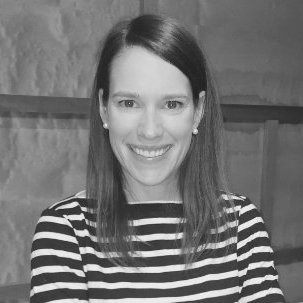MYTH: GMAT / GRE scores are correlated with acceptance outcomes at the top MBA programs.
Yes, you read that right. Every year our team coaches 125~ management consultants from one of the leading firms. Within this applicant cohort, our data has shown that applicants with a 720 GMAT are just as likely as those with a 780 GMAT to gain acceptance to top MBA programs.
Why could this be? Within this impressive bunch of applicants, wouldn’t the admissions teams at HBS and Stanford GSB just pick the highest scoring ones? Not exactly, particularly when their priority is to assemble a highly diverse class.
So, in a competitive process where a high test score won’t be sufficient to get you accepted, what will?
In a nutshell, differentiation.
The next question then becomes, “how do I stand out?”
For some MBA applicants, this comes more easily—like the architect our team worked with last year who is now a student at MIT Sloan or the injured Marine Corps veteran who is now a student at Wharton.
However, for many of our clients from over-represented industry backgrounds, the answer is far more nuanced.
Those nuances, based on our clients’ real life success stories, are what I want to share with you today. My hope is that if you find yourself in a particularly competitive applicant pool for top MBA programs, these tips will give you some fresh inspiration on how to differentiate yourself from the pack.

#1 – Tell your “superhero origin story”
This is a fun framing that we often use with our clients to get them thinking about their story in a fresh way. But the result is high impact: a cohesive narrative that sheds light on your experiences, motivations, and ambitions. It shows why you’ve done the things you’ve done and thereby empowers the admissions committee to imagine how you’ll show up as a student, alum, and future business leader. And those are the applicants that get accepted.
There are four key pieces of any superhero origin story: 1) their background (family, where they grew up, etc.), 2) the pivot point or the catalyst that led to a change / transformation, 3) challenges they overcame as part of that transition, and 4) what now motivates them to use their powers for good.
Now let’s apply this to a successful HBS essay topic:
- Applicant grew up in a multi-cultural family.
- Applicant moved away from extended family to the mid-west US, where there was little cultural diversity.
- Applicant’s family couldn’t afford to travel and so they maintained bonds with extended family in different countries via FaceTime and email.
- In college, when she could finally travel, applicant found that forging connections between different cultures on her international case teams was her superpower; it not only expanded her perspective but enriched that of others. Since then, she has been a connection builder in different capacities at her consulting firm and aspires to do so in a future career in hospitality.
What is so effective about this approach is that it has nothing to do with work until the very end. In most cases, your personal story is far more powerful than any professional accomplishments. By thinking about yourself as a “superhero”, you’ll realize just how much you have to offer. Plus, you’ll tell a story that nobody else can tell. How’s that for differentiation?

#2 – Own your point-of-view
This one can feel more delicate but if done well, is magic. Let me first explain what I mean by this. Applicants often fall into the trap of “reporting” (like a news reporter) on the objective facts and events in a particular story instead of sharing their firsthand, eyewitness account of not only what happened, but what they were thinking and feeling—and how others were thinking and feeling. By writing from the latter point of view, you enable the reader to connect with you as the protagonist of the story and in doing so, are setting yourself apart.
But taking it one step further, my advice here is to also take a stand for what you think and believe. After all, students having a viewpoint and respectfully defending it is exactly what makes classrooms at top MBA programs so engaging. Business schools aren’t looking for students and alums who are ensemble cast members—they want change-makers who are stars of the show.
Let’s revisit the example from above to bring this to life. A perfectly OK career goal would be the applicant’s desire to become a leader in the hospitality industry focused on driving strategy and growth. However, this applicant distinguished herself by injecting her own point of view. She believes that the hospitality industry is currently missing a huge opportunity to create new models of deeply personalized, end-to-end travel experiences that immerse travelers in local cultures and build connections. And she backed that up with specific examples from both her personal life and consulting case work.

#3 – Leverage your recommenders
There’s no doubt just how important your letters of recommendation are in the admissions process for top MBA programs. But they become even more important for applicants from over-represented industries because the competition is your teammates, your peers. The admissions committee will be looking to your recommenders for insight into how you truly compare to your peer group from someone who knows you well.
No matter how inspiring your superhero origin story is and no matter how adeptly you convey your point-of-view on your industry or area of passion, if your letters of recommendation are lukewarm, it’s like throwing a wet blanket on a bonfire. Womp womp.
What this means is that you should select your recommenders carefully and communicate with them as directly and thoroughly as possible about your application strategy, so they have the full context.
It’s also helpful to remind them that letters of recommendation are not performance reviews, where the good needs to be balanced with the bad. That’s not to say that your recommenders should sugar coat the truth (because they shouldn’t), but they should be your enthusiastic fans. And they should directly answer the question about how you compare to your peers.
Think of the MBA application process as a game of musical chairs. Top MBA admissions officers say that up to 80% of applicants are qualified for admission to their program yet less than 20% will be accepted. My hope is that the advice I shared above helps you make big strides in setting yourself apart from the pack—and gaining that coveted spot at your dream school. If you’d like help differentiating yourself in your applications to top MBA programs, click here to request an initial consultation.
After embarking on my own MBA journey, I co-founded Vantage Point MBA Admissions Consulting to help aspiring business school students get accepted to the top MBA programs in the U.S. and Europe. As President, I currently lead a team of over 25 superstar consultants to give our clients an unmatched experience, with a focus on white glove, personalized collaboration and mentorship.




